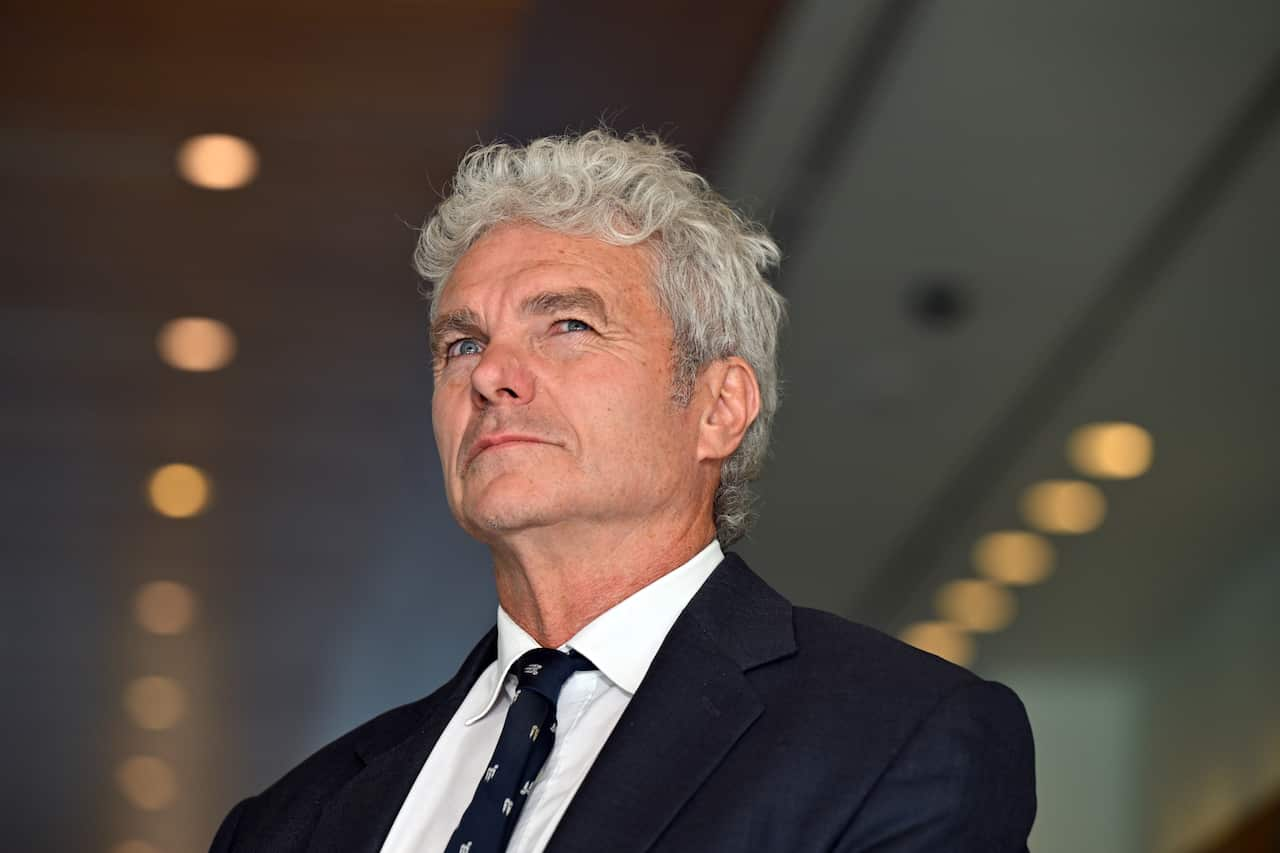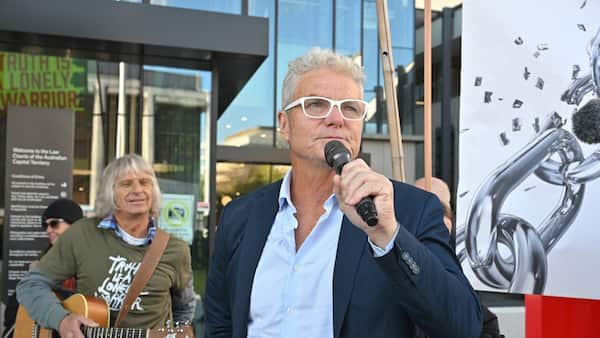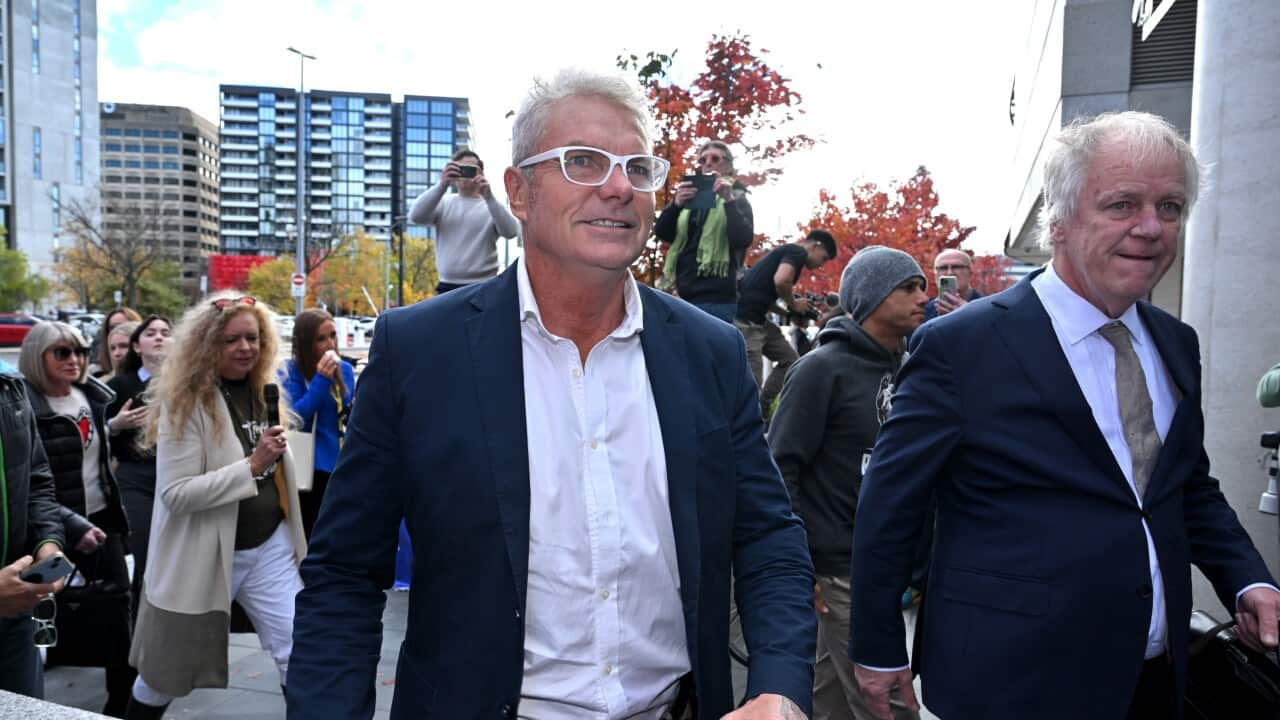Key Points
- David McBride has been sentenced to five years and eight months in jail.
- The former military lawyer leaked classified Australian Defence Force information.
- McBride was given a non-parole period of 27 months.
David McBride, the man who leaked classified military documents that revealed allegations Australian soldiers committed war crimes in Afghanistan, has been sentenced to five years and eight months in prison.
McBride pleaded guilty to stealing classified Australian Defence Force material and leaking it to journalists.
His legal team say they will appeal the supreme court’s decision.
Justice David Mossop sentenced McBride to an aggregated five years and eight months in prison for three charges in the ACT Supreme Court on Tuesday.
McBride was given a non-parole period of two years and three months, meaning he’ll remain behind bars until at least August 2026.
Handing down the decision, Mossop said it was unlikely McBride could be rehabilitated because he believed he had done the right thing.
Whistleblower and former military lawyer David McBride took hundreds of Defence files and leaked them to ABC journalists. Source: AAP / Mick Tsikas
The former military lawyer’s actions were a “gross breach of trust” of his position as a lawyer, Mossop told the court.
There was a significant need to deter similar actions in the future but McBride’s mental deterioration from a prison sentence also needed to be considered, the judge said.
But he accepted McBride was of good character following numerous character references and a report by a clinical psychologist outlining his morality and sense of justice.
A ‘controversial’ decision
Independent MP Andrew Wilkie says the decision is controversial.
“The first Australian to go to jail over alleged war crimes in Afghanistan is the whistleblower who brought the allegations of war crimes to the media’s and to the public’s attention,” he said.
“I can say with great confidence that the vast majority of people who have been following the David McBride issue will be deeply disappointed today.”
McBride initially pleaded not guilty, but eventually changed his plea to guilty to three of the charges last November.
Greens Senator David Shoebridge, who took part in a protest outside the courtroom, recalls the incidents that lead to McBride’s sentencing.
“I remember talking to David when he was first charged. And, he’s a lawyer and he’s kind of a lawyer to his bones in many ways,” he said.
“He was of the view that the system couldn’t permit this.
“Surely the system, with all these laws and checks and balances, surely it wouldn’t permit it to get to the point where he actually goes to jail. Because remember all he did was tell the truth.”
‘Political interference’
McBride believed soldiers were being unduly investigated for the war crime of murder for actions that didn’t reach that threshold because of political interference to show the public the defence force was taking the incidents seriously.
Mossop found he didn’t act for financial gain or to help any adversaries.
But he didn’t accept McBride’s assertion he thought he wasn’t committing a criminal offence after the former military lawyer said he believed he would ultimately be vindicated by a court for acting in the public interest.
McBride made “vague and unparticularised claims” about criminal behaviour by top defence brass, Mossop said.
But he accepted poor mental health impacted by depression and PTSD which was self-medicated by alcohol and substance abuse “made a material, if only minor, contribution … to offending”.
‘I did not break my oath’
Sydney based lawyer and human rights advocate Arezo Zoe Safi reached out in support to McBride.
Speaking to SBS, Safi, who is a originally from Afghanistan, says today’s decision has shaken her faith in Australia’s legal system.
“We come from a country that’s a war-torn country. I’ve lived in Australia for over 30 years.
“You would think that we have a rule of law, a system where there’s no criminal conducts, where there’s no wrongdoings, so there’s been that faith shattered at some point”.
She said she was “grateful for what McBride had done”.
Senator Shoebridge says the supreme court’s decision is meant to serve as a deterrent for all whistleblowers.
Speaking to his supporters outside court ahead of his sentencing, McBride said he had never been prouder to be an Australian.
He maintained he did his duty by exposing wrongdoing.
“I did not break my oath to the people of Australia and the soldiers that keep us safe,” he said.
I did not break my oath to the people of Australia and the soldiers that keep us safe.
David McBride
The prosecution had pushed for McBride to spend a minimum of two years behind bars to reflect the severity of his crime but his lawyers argued for leniency, saying what he did was in the public interest.
McBride took 235 documents, with 207 classified as secret, by printing them at different Defence facilities and taking them out in his backpack.
The secret classification indicates the document’s disclosure could seriously damage the national interest or people, including the loss of life.
The leaked documents led to reports about Australian special forces soldiers committing alleged war crimes.
An inquiry later found credible information about 23 incidents of potential war crimes, which involved the killing of 39 Afghans between 2005 and 2016.
Human rights lawyers and advocates argued punishing whistleblowers would have a chilling effect on free speech and scare people away from exposing wrongdoing.
In collaboration with SBS Pashto.


